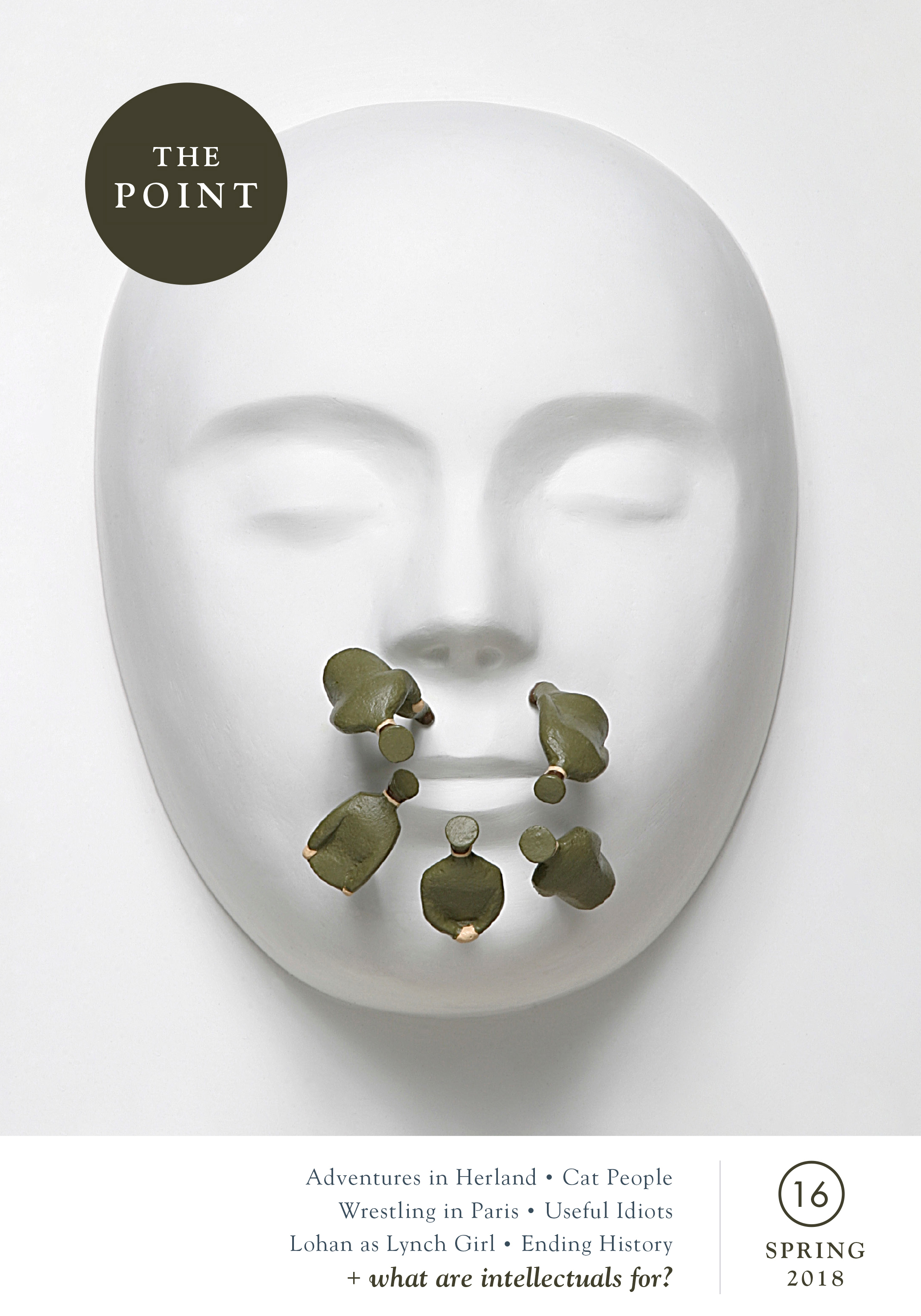Every issue of The Point contains a “symposium” section organized around a question that takes the form: What is x for?
Imagine a world without men.
A number of times, some of which I hardly remember, all of which I try to forget, I left an apartment where I had a sexual encounter and things had happened that made me feel violated.
If Lindsay Lohan is not and has never been two women sensu stricto, we might be forgiven for believing something different; twice now she has split herself onscreen, and twice the overall effect was of exactly what it was: one girl refracted, even though there were two names, two sets of clothes, two miens.
It’s remarkable, given the propensity of American officials, journalists and academics to refer to other nations and cultures as immature and underdeveloped, how frequently and consistently Americans themselves are described as children, by both foreign authors and American writers themselves.
My first full-time job after college was with the Center for American Progress, a policy institute in Washington, D.C.
We are living through a moment of national reckoning.
Politics on both sides of the Atlantic is being played out in the costumes of dead generations.
Of all the personal stories shared in the wake of #MeToo, in no single narrative did so many recognize themselves as in a work of fiction: the short story “Cat Person,” by 36-year-old first-time author Kristen Roupenian.
A few months into a cushy postdoctoral fellowship at Princeton, where the walls were a soothing yellow and poached salmon was a staple, it dawned on me that I could reasonably be considered an arsehole.
Hans-Georg Gadamer was born on February 11, 1900, the same year that Friedrich Nietzsche died and 250 years (to the day) after the death of René Descartes.
In 1964, when Joseph Brodsky was 24, he was brought to trial for “social parasitism.”
Mladen Dolar is a senior research fellow in the department of philosophy at the University of Ljubljana in Slovenia, and a writer on a huge array of cultural topics.
Intellectual Ex-Radicals and World Reaction: The Crisis of the Disillusioned Fellow-Travelers of Bolshevism Is Not the Same as a “Crisis of Marxism” (Trotsky 1939) The Intellectual: […]
In late August of 2017, a legion of gladiatorial men and women from the world’s backwaters descended on Paris to determine who, in a series of weight classes, were the best wrestlers on the planet.
It might seem that there is not much left to say regarding Elif Batuman’s debut novel: since its release in March of last year The Idiot has received generous coverage from nearly every literary-oriented publication in the United States.
One could be forgiven for thinking that guaranteed income, the direct provision of government cash for everyone’s basic living expenses, is a new idea.
Chances are, if you are reading this, that you have for some period of your life been a regular at the kind of bookstore owned and run by a mean old walrus with ketchup stains on his shirt and strata of nicotine marbled into his whiskers, and who turns out to be very knowledgeable and cool and non-creepy once you get to know him.
By some indicators we are entering a new Dark Age: anti-intellectual fervor is raging, suspicion of experts is at an all-time high and appeals to reason are dismissed as passé.
